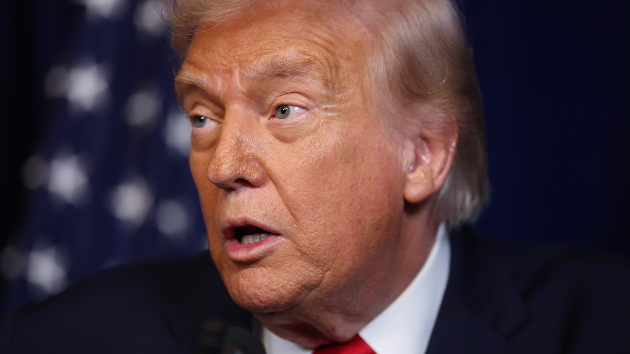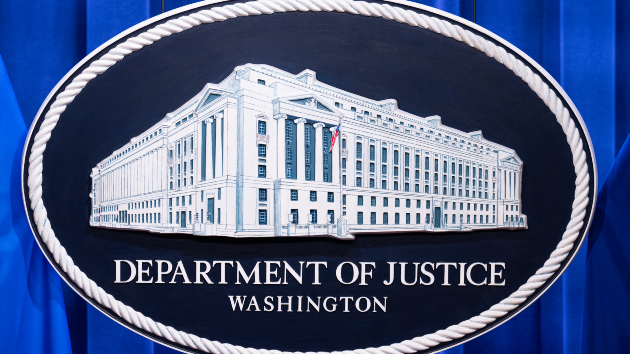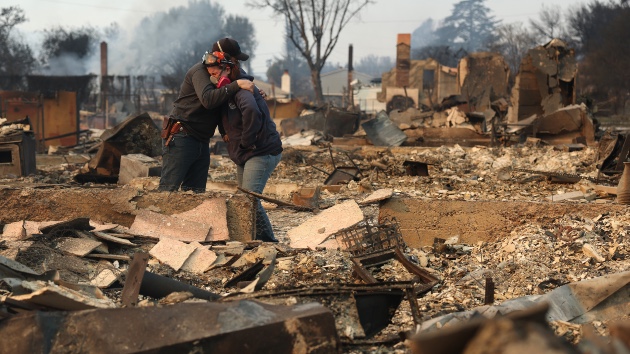What potential grounds does Donald Trump have to appeal his hush money conviction?
Written by ABC Audio ALL RIGHTS RESERVED on June 6, 2024

(NEW YORK) — A jury has convicted former President Donald Trump of 34 counts of felony falsifying business records, but the case is far from over, with Trump expected to file an appeal after he is sentenced in July.
There are a number of possible grounds for an appeal of the case, but it will likely be difficult to overturn the ruling, legal experts told ABC News.
“I’m assuming that the Trump team is going to have a robust appeal with a number of arguments starting from the pre-trial process, through the trial and possibly the sentencing,” Fordham law Professor Cheryl Bader told ABC News. “I think they’re going to make any potential argument that they can on appeal.”
Here are some of the potential grounds for a Trump appeal:
Trump Felony charges
How Trump was charged in the Manhattan hush money case could be one of the strongest arguments for an appeal, some experts said.
While the crime of falsifying business records — which Trump was charged with — is a misdemeanor, prosecutors charged Trump with a felony, arguing he falsified records with an intent to conceal another crime.
“I think the statute is at risk of being declared unconstitutional because the statute that charged the former president with the felony does not say what that other crime is that elevates the misdemeanor to a felony,” Randy Zelin, a Cornell University Law professor, told ABC News.
Another lawyer argued that there is nothing unconstitutional about the statute.
Attorneys for Trump could argue that “this more complex charge — that takes one misdemeanor charge and piggybacks another misdemeanor charge on it, to reach a felony — was inappropriate” or “improper,” Bader said.
“Although this might have been a less common construction of charging instruments, that doesn’t make it improper,” Bader said.
Experts used the crime of burglary as an analogy. When a person enters a dwelling unlawfully—which is trespassing—with an intent to commit a crime, that elevates the crime of trespassing to burglary, which is a felony.
Bader argued that even in burglary cases, the jury would need to unanimously agree that the accused entered a dwelling with an intent to commit another crime, but they don’t have to agree on what the second crime is — they could disagree over whether the accused intended steal, assault or kidnap someone, but still find the defendant guilty.
“[Prosecutors] don’t have to establish all elements of that crime is not actually being charged with the underlying crime, but just with the intent to commit or conceal that crime,” Bader said.
The structure of burglary law, could form the basis of a successful appeal, according to Kate Levine, a professor at Cardozo School of Law.
But “raising the misdemeanor to a felony seems like the only [argument for appeal] that has any legs,” she told ABC News.
Other experts say a similar Sixth Amendment argument Trump’s attorneys could make is that they didn’t have notice of the three different theories of the unlawful means Trump intended to commit in violation of New York election law, which prosecutors told the jury in closing arguments.
“If he was not given proper notice of those charges until the last minute, or just procedurally it was done incorrectly, that could be a strong argument,” Brian Buckmire, and ABC News legal contributor, told ABC News.
Trump could potentially also argue the charges were unconstitutionally “vague” based on the Fifth and Fourteenth Amendments.
“In a criminal law setting, if a statute is too vague, as to inform the average citizen what actions would cause criminal liability, it would be void, because it’s vague and how I would say it applies here would be, it’d be very hard for any attorney before Donald Trump’s trial to say that we would know, or be aware of, or could even advise a potential client that federal election laws — which a state prosecutor doesn’t have jurisdiction over — could be used to elevate a misdemeanor, that has passed the statute limitations, into a felony, that is within the statute of limitations,” Buckmire said.
“It’s a little bit vague as to how the prosecutors did that — I can see why they did that — but I think there might be a constitutional argument for void for vagueness there,” Buckmire said.
Jury instructions
In U.S. criminal law, a jury needs to unanimously find a defendant guilty beyond a reasonable doubt. But, one expert argues the judge’s jury instructions were not clear and could be grounds for appeal.
“Although you must conclude unanimously that the defendant conspired to promote or prevent the election of any person to a public office by unlawful means, you need not be unanimous as to what those unlawful means were,” Judge Juan Merchan told the jury.
Zelin pushed back.
“It is equally a bedrock principle of our system of justice, that a defendant’s guilt must be proven beyond reasonable doubt by a unanimous jury, and for the judge to essentially permit the jurors to disagree over what this other crime was … [and] still convict the defendant — that flies in the face of everything that this country was built on,” Zelin said.
Another expert pushed back against that argument.
“They were told that they have to be unanimous as to this underlying crime of promoting or preventing an election through unlawful means. What they don’t have to be unanimous on is what those unlawful means were — and that is not an element of the statute itself,” Bader said.
Despite arguing the jury instructions were in line with the law, Bader said this issue will probably come up during an appeal
“The jury charge is always the most fertile ground for appeal, because that’s a question of law,” Bader said.
“If the judge is incorrect on the law, and therefore the jury has the wrong law to apply to the facts, that would be fertile ground for a reversal,” Bader said.
Change of venue
Trump’s attorneys will also likely argue for an overturn of the verdict on the grounds that their change of venue request was denied. Trump’s legal team argued that he could not get a fair trial in Manhattan.
Bader said this argument is unlikely to warrant an appeal, as this case is “about as high-profile a case as you can get — nationally and internationally.”
“There’s no right to a jury pool that agrees with your politics — that’s not in the Constitution. When we say you’re entitled to a jury of your peers, it’s not a jury that agrees with your politics,” Bader said.
Buckmire agreed.
“That [argument] seems to me more like we just want to go where we got more votes in the previous election and from jury selection, I’m not quite sure if there was any impropriety there that would have shown that these jurors are biased, because Donald Trump’s attorney did participate in selecting these jurors,” Buckmire said.
Potential evidentiary issues
Experts agreed that lawyers will likely raise a number of evidentiary issues that came up throughout the case, including Stormy Daniel’s testimony and Michael Cohen’s guilty plea to election law crimes.
“The Stormy Daniels testimony went way overboard, and was way too prejudicial, because it was so salacious,” Zelin said.
After she concluded her testimony, which prompted an interruption from the judge, Trump’s team moved for a mistrial, which the judge denied twice.
“I’m sure they’ll argue that the stormy Daniels testimony went too far and was more prejudicial than it was probative, which is the evidentiary test for relevance,” Bader said.
“We didn’t need to know some of those sexual details that came up in the trial to know or decide whether or not Donald Trump falsified his business records. And if an appellate judge says that these facts were more prejudicial than probative to the crimes, then that can amount to a reversal as well,” Buckmire agreed.
While experts said Trump could move for an expedited timeline of appeal due to the upcoming election, it is unclear if the appeal could be concluded before November. Buckmire said it could still take a year before the appeal is concluded.
“Expediting a case like this doesn’t mean it gets resolved by November; expediting a case like this means it gets resolved by 2025. That’s a fast appeal,” Buckmire said.
Copyright © 2024, ABC Audio. All rights reserved.

 KVSP
KVSP 




